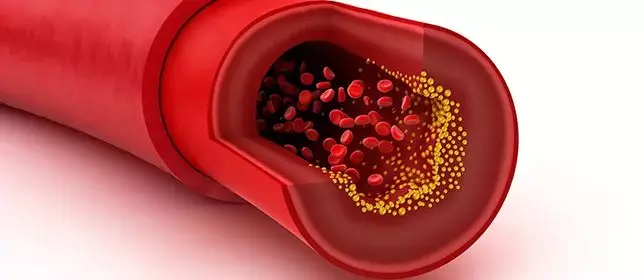- Home
- Medical news & Guidelines
- Anesthesiology
- Cardiology and CTVS
- Critical Care
- Dentistry
- Dermatology
- Diabetes and Endocrinology
- ENT
- Gastroenterology
- Medicine
- Nephrology
- Neurology
- Obstretics-Gynaecology
- Oncology
- Ophthalmology
- Orthopaedics
- Pediatrics-Neonatology
- Psychiatry
- Pulmonology
- Radiology
- Surgery
- Urology
- Laboratory Medicine
- Diet
- Nursing
- Paramedical
- Physiotherapy
- Health news
- Fact Check
- Bone Health Fact Check
- Brain Health Fact Check
- Cancer Related Fact Check
- Child Care Fact Check
- Dental and oral health fact check
- Diabetes and metabolic health fact check
- Diet and Nutrition Fact Check
- Eye and ENT Care Fact Check
- Fitness fact check
- Gut health fact check
- Heart health fact check
- Kidney health fact check
- Medical education fact check
- Men's health fact check
- Respiratory fact check
- Skin and hair care fact check
- Vaccine and Immunization fact check
- Women's health fact check
- AYUSH
- State News
- Andaman and Nicobar Islands
- Andhra Pradesh
- Arunachal Pradesh
- Assam
- Bihar
- Chandigarh
- Chattisgarh
- Dadra and Nagar Haveli
- Daman and Diu
- Delhi
- Goa
- Gujarat
- Haryana
- Himachal Pradesh
- Jammu & Kashmir
- Jharkhand
- Karnataka
- Kerala
- Ladakh
- Lakshadweep
- Madhya Pradesh
- Maharashtra
- Manipur
- Meghalaya
- Mizoram
- Nagaland
- Odisha
- Puducherry
- Punjab
- Rajasthan
- Sikkim
- Tamil Nadu
- Telangana
- Tripura
- Uttar Pradesh
- Uttrakhand
- West Bengal
- Medical Education
- Industry
Elevated Lp(a) independently associated with long-term MACE among individuals with and without baseline ASCVD: JACC

A recent study unveiled a crucial link between Lipoprotein(a) [Lp(a)] levels and the risk of atherosclerotic cardiovascular disease (ASCVD). The findings were published in the Journal of the American College of Cardiology and explored the intricate relationship between Lp(a) and major adverse cardiovascular events (MACE).
The study was conducted across two medical centers in Boston, Massachusetts, analyzed data from over 16,000 individuals that spanned nearly two decades to determine the association between Lp(a) levels and the incidence of MACE among patients with and without pre-existing ASCVD. This research utilizing Cox proportional hazards modeling and categorized participants into Lp(a) percentile groups and evaluated their risk of MACE, including nonfatal myocardial infarction (MI), nonfatal stroke, coronary revascularization or cardiovascular mortality.
The results from the analysis found that out of the 62% of patients with baseline ASCVD, the individuals in the 71st to 90th percentile Lp(a) group expressed a notable 21% increased hazard of MACE, close to those in the 91st to 100th percentile group. Also, among the remaining participants without established ASCVD, there was a progressive increase in MACE risk with rising Lp(a) levels, with the individuals in the highest percentile group facing a sharp 93% relative risk increase. These findings challenge conventional risk assessment paradigms suggests that the optimal Lp(a) threshold for gauging cardiovascular risk may differ based on the individuals in the primary or secondary prevention cohorts.
Reference:
Berman, A. N., Biery, D. W., Besser, S. A., Singh, A., Shiyovich, A., Weber, B. N., Huck, D. M., Divakaran, S., Hainer, J., Kaur, G., Blaha, M. J., Cannon, C. P., Plutzky, J., Januzzi, J. L., Booth, J. N., III, López, J. A. G., Kent, S. T., Nasir, K., Di Carli, M. F., … Blankstein, R. (2024). Lipoprotein(a) and Major Adverse Cardiovascular Events in Patients With or Without Baseline Atherosclerotic Cardiovascular Disease. In Journal of the American College of Cardiology (Vol. 83, Issue 9, pp. 873–886). Elsevier BV. https://doi.org/10.1016/j.jacc.2023.12.031
Neuroscience Masters graduate
Jacinthlyn Sylvia, a Neuroscience Master's graduate from Chennai has worked extensively in deciphering the neurobiology of cognition and motor control in aging. She also has spread-out exposure to Neurosurgery from her Bachelor’s. She is currently involved in active Neuro-Oncology research. She is an upcoming neuroscientist with a fiery passion for writing. Her news cover at Medical Dialogues feature recent discoveries and updates from the healthcare and biomedical research fields. She can be reached at editorial@medicaldialogues.in
Dr Kamal Kant Kohli-MBBS, DTCD- a chest specialist with more than 30 years of practice and a flair for writing clinical articles, Dr Kamal Kant Kohli joined Medical Dialogues as a Chief Editor of Medical News. Besides writing articles, as an editor, he proofreads and verifies all the medical content published on Medical Dialogues including those coming from journals, studies,medical conferences,guidelines etc. Email: drkohli@medicaldialogues.in. Contact no. 011-43720751


